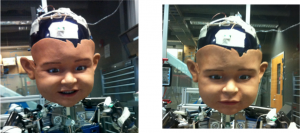4 Things You Didn’t Know About Smiling
The smile is one of the most common facial expressions, but what do you really know about it? Probably not as much as you think.
Psychologists studying the smile have made some surprising discoveries. Be warned, though, that smiling research is pretty much a Pandora’s Box: once you learn about some of the results, you might never be able to smile the same way again!
1. Your smile matters – even online
Everyone puts their best selfie forward on social media, but a team of international researchers decided to take things a step further. In their experiment, people interacted with each other virtually, identifying themselves with avatars that had their pictures.
The catch? Some of the avatars were doctored to enhance participants’ smiles, and some were left as they were. Although the vast majority of participants couldn’t detect that some of the avatars were doctored, those who were in the enhanced smile group described their interactions more positively and felt better after their conversations.
2. Smiling makes you look older
No doubt smiling makes you look happier. What’s less obvious is that it seems to make you look older too.
One possible explanation given by the study’s author is that smiling creates wrinkles, which we automatically associate with age. Regardless, the takeaway is obviously that if you want to look young, you should never smile ever.
3. Babies time their smiles strategically
We don’t always give babies the credit they deserve, but they can be pretty smart. A study published last year found that by four months of age, infants time their smiles in order to maximize the amount of time their mothers spend smiling back.
To test their finding, the study’s authors created a robotic baby that perceived adults’ smiles and synchronized its own smiles using the same strategy as infants:
As expected, the baby robot maximized the amount of time the adults it interacted with spent smiling. No doubt it’ll be a huge success when it hits the market.
4. Smiling hurts your chances in job interviews
What’s the easiest way not to get a job? Cracking a smile during the interview.
OK, that might be an exaggeration, but some research published last year found that candidates for a newspaper reporter position got hired less when they smiled more. Rather, the most successful applicants smiled the most at the beginning and end of the interview and less in the middle.
One thing to keep in mind is that the type of job does seem to matter, with a tendency to smile being an especially large disadvantage for more serious jobs. So if you’re trying to become a professional clown, impressing your interviewers with your intimidating demeanor might not be the route to go.
Of course, none of this is to say that smiling is bad. Mercifully, life isn’t one long job interview. A smile can still make you and the people around you feel good, so who cares how many years your grin may or may not be adding to your age?
